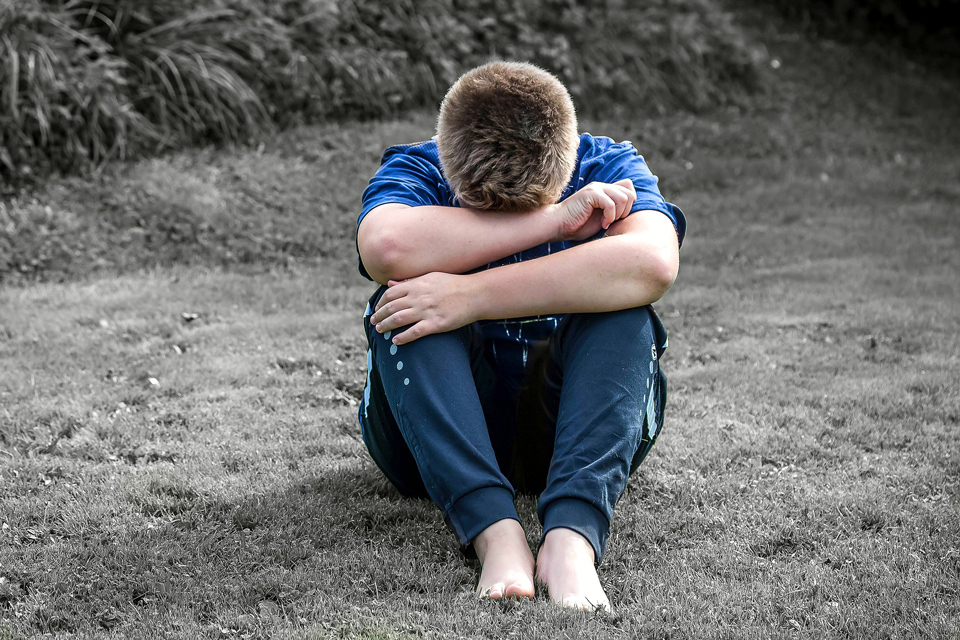From the Archive
This article was originally issued in the Spring 2008 edition of the NAGC Magazine
“Am I not destroying my enemies when I make friends with them?” Abraham Lincoln
Friendships can be difficult for all of us for a wide range of reasons.
There are many types of friendships…best friends, acquaintances, family, colleagues, long distance, pen pals, boyfriends, teachers, husbands, lovers, health professionals, counsellors, therapists, girlfriends, partners, mentors and coaches. And I am sure you can think of some I have missed?
Some of these people or groups will stay in our lives forever, some will stay a short while and some will come and go several times throughout our lifetime. And, of course, no matter what age we are or where we are in the world, we can all be hurt by any one of our friends or acquaintances.
Each one of us will have different relationships with each one of the above groups and of course each one of the above groups naturally creates different relationships because socially we are taught to interact differently with different social groups in different situations at different times of our lives. Each one of us also has different size personal spaces and we allow different people in, in differing quantities. Try not to force friendships on your children.
Friendships can be difficult in many ways, whatever age we are. Age, personality, maturity and life experiences play a big part in determining how we respond to certain people and certain situations and each and every one of us is different. Accepting people for who they are no matter what, is a huge challenge for most of us. We all have differing viewpoints and can so easily make assumptions and judgements on others before we have given them a chance to prove themselves. One of the hardest things to do is to accept people unconditionally the first time we meet them.
We are not born with mature coping mechanisms, skills and strategies for dealing with all the situations that arise out of friendships. We need guidance, support, role models, stability and life experience to assist us with fitting in and integrating successfully with many of the individual and groups of people we come into contact with over our lifetime. Even then we don’t always cope or get it right. As we develop, mature and grow we learn social skills from our upbringing, background, culture, genes, life experience and the role models around us. This, over time, helps to mould and shape us into (hopefully) the socially acceptable adults that we endeavour to become, thus helping us, in one way or another, to be socially acceptable and integrated and master some meaningful and life-long friendships.
In a perfect world if this all happened at the right times and panned out beautifully then maybe we would all be socially integrated, accepted balanced individuals with no difficulties?
Unfortunately, life and the world just aren’t like that…at times we may wish it was…but some of us might say life would be boring, predictable and with no challenge or risk and some would say those who don’t take risks, even small risks, don’t live fully.
So, imagine the children who face challenges, no matter how great or small. Some may have poor socio-economic backgrounds, others English as a second or even third language. Some may face cultural differences, gender issues or learning difficulties. Others may suffer from depression, phobias or autism. Some may suffer from one need or difficulty, others may have dual or multiple needs or exceptionalities. Add to any, or all of these needs, a high IQ and we may see children who can be very misunderstood, lonely and isolated.
Not all children and young people with high ability and one or more exceptionality have difficulties. Not all with high ability alone have difficulties, but many of them do. There are many who spend much of their lives isolated and lonely; alone even in crowded places, places that shouldn’t be lonely, places that should be happy and fun spaces to be a part of like the classroom, the playground, the lecture theatre, the common room, the union bar, the residential trip, the summer ball – most of us recognise these as exciting and enjoyable events with happy memories held in our minds and in photo albums on bedroom shelves.
Some, nevertheless, will have recurring nightmares and bad memories associated with such events. Those with bad memories will tend to avoid events like these like the plague, feeling out of place, alone, uncomfortable, misunderstood and extremely awkward at finding themselves in some of the above spaces and situations, possibly without a friend for support and encouragement; some without a partner for the prom or the Christmas ball.
High ability and/or gifted young people can find social situations very difficult. Intellectually they may be high flyers achieving high grades and accolades in most areas they touch on, but socially and emotionally they often struggle to have positive and fulfilling relationships with their peers. Some are more comfortable with much older or younger people, others more comfortable with adults. This tends, in some part, to be due to their asynchronous development where they can discuss and debate difficult and complex issues like an adult and consequently, in many cases, become socially isolated from their peer group. In other areas they can be immature or awkward and thus not fit in to certain social situations.
Sometimes high ability and gifted young people can come over as arrogant and precocious, appearing to know everything, acting at times much older than their chronological age, thus in some cases, unbeknowingly, setting themselves apart from their peer group. Some often don’t have any interest in playing the “normal” playground games, which does them no favours when establishing friendships. Many of the issues these children and young people face can cause frustrations and anger, and this can lead to arguments and bad feeling between friends and within families. Some young people will need guidance with anger and behaviour management.
Bullying or being picked on for looking or behaving differently can be a problem and this needs to be taken seriously and nipped in the bud. Being referred to as a “geek”, “boff” or “nerd”, or being told you cannot play with what you call your friends when you are 5 or 6 years old is hard to hear and deal with alone. It’s important you have the confidence to tackle bullying of any degree head on.
“We should behave to our friends as we would wish our friends to behave to us” Aristotle
It is important from a very early age (possibly much younger than many of us are aware of) that as parents, carers and professionals we teach, role model and nurture the social and emotional development of the gifted child in order to endeavour to pre-empt some of the future difficulties that we know many of them encounter and suffer from. If we can do this early enough, we will be going a long way to helping them endeavour to “fit in” much later in life. Personally, I feel they need more assistance and support socially and emotionally than they often do academically – high ability and/or gifted children and young people need a balanced and holistic learning and life experience, probably more than most.
Because of their Asynchronous development many gifted children and young people, at certain times in their development, operate way above their chronological years. It is at this stage in their development that we need to be aware and ready, to embark on a series of social and emotional life skills that are consistent, encompass your family values and have firm boundaries. Asynchronous development can come and go or last a lifetime; it varies in each individual.
Today, parents and carers are busy people. With both parents often working full-time, some may have little or no time, energy or the inclination to fully engage and support the very important social and emotional development of their gifted child or children. By teaching these invaluable life skills to our children we are endeavouring to ensure that many of the young, gifted and talented of tomorrow have the skills and coping mechanisms to fit into society, hold down a job, look after themselves and their families and hopefully live happy and fulfilled lives.
Manners, social skills, positive communication, interaction, kindness, respect, empathy and compassion are all essential ingredients for responsible young people and adults. We have to teach most, if not all, of these skills and role model them consistently and positively; we are not born with them.
- Encourage any type of positive friendship; one good friend is OK and better than none
- Encourage different social situations; memberships of activity groups
- Be supportive and encourage all types of social situations
- Have empathy and compassion
- Be a good role model
- Be consistent, firm but fair
- Pick your battles
- Give praise when it is due
- Do not compromise your values
- Have two-way respect.
Encourage, where possible, your child or young person to join activities or clubs where they may meet like-minded friends. Tap into what interests them or what they are particularly gifted and/or talented in and try to encourage them to take part in activities associated with these interests. For example:
Theatre or dance clubs; art clubs; writing or poetry; sports clubs or activities; chess or maths; computer or web design; science or archaeology; swimming or horse riding; archery or fencing; go-karting or cricket.
Your local museums, theatres, sports clubs and more, often run workshops and activities for children to attend both in term time and the school holidays. Use the internet to search for activities and specialists, coaches and agents in your area. Contact your local Further Education College, Adult Education Centre and Lifelong Learning for courses, workshops and seminars.
Young people today prefer to communicate via social media and many high ability pupils or students may find this preferable due to their difficulties/awkwardness with social situations and encounters. This is OK, but ensure you teach safety guidelines and boundaries and monitor very young children’s use of the internet carefully. Teach them not to give out real names, phone numbers or addresses and never to meet anyone without letting an adult know about it. Pen Pal type communication over the internet or by good old-fashioned letter is a healthy alternative option for friendships for children and young people who struggle with other types of social integration.
“Wishing to be friends is quick work, but friendship is a slow ripening fruit” Aristotle
Resources
The Social and Emotional Lives of Gifted Kids by Tracy L. Cross
The Social and Emotional Development of Gifted Children by Maureen Neihart
Stand up for Your Gifted Child by Joan Franklin Smutny
The Survival Guide for Parents of Gifted Kids by Sally Yahnke Walker
Incentive Plus – board games and resources to promote social, emotional and behavioural skills in children and young people – www.incentiveplus.co.uk






